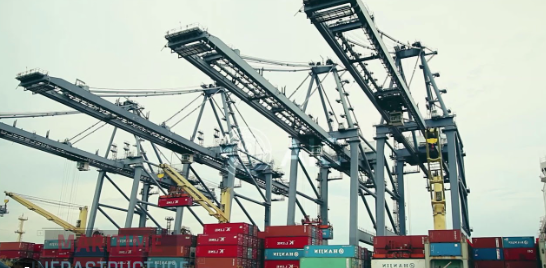Indo-Pacific Oceans Initiative (IPOI): A Five-Year Review (GS Paper 2, IR)

Introduction:
- The Indo-Pacific Oceans Initiative (IPOI), launched by India in November 2019 at the East Asia Summit (EAS) in Bangkok, has recently marked its fifth anniversary.
- This initiative aims to enhance cooperation in the Indo-Pacific region, focusing on maritime security, stability, and sustainable development.
- The IPOI is aligned with India’s broader Security and Growth for All in the Region (SAGAR) vision, which emphasizes a free, open, and rules-based Indo-Pacific.
Overview of IPOI:
Objective and Framework:
- The IPOI seeks to foster regional collaboration on maritime issues while upholding a rules-based order.
- It operates as a non-treaty-based, voluntary initiative that leverages existing frameworks such as the EAS.
- This flexible, non-binding nature allows countries to engage according to their interests and capabilities without the burden of formal institutional commitments.
Key Pillars and Leadership:
The IPOI is structured around seven core pillars, each led by specific countries:
- Maritime Security: Co-led by the UK and India, focusing on safeguarding maritime navigation and addressing security challenges like piracy and smuggling.
- Maritime Ecology: Australia and Thailand lead efforts to preserve marine ecosystems and promote sustainable practices.
- Maritime Resources: France and Indonesia work on managing maritime resources to ensure their sustainable use.
- Capacity Building and Resource Sharing: Germany spearheads initiatives to enhance regional capacity through sharing knowledge and resources.
- Disaster Risk Reduction and Management: India and Bangladesh lead efforts to improve regional preparedness and response to natural disasters.
- Science, Technology, and Academic Cooperation: Italy and Singapore focus on advancing scientific research and fostering academic exchanges.
- Trade, Connectivity, and Maritime Transport: Japan and the US drive initiatives to enhance trade routes, connectivity, and efficient maritime transport.
Significance and Achievements:
Promotion of a Rules-Based Order:
- IPOI plays a crucial role in promoting a rules-based regional order, ensuring the free movement of goods, services, and people while respecting the sovereignty of nations.
- This approach aims to maintain peace and stability in the Indo-Pacific, a region of significant global economic and strategic importance.
Enhanced Maritime Security:
- By fostering cooperation among member countries, IPOI addresses various maritime threats, including piracy, illegal fishing, and smuggling.
- The collaborative efforts help in strengthening regional maritime security and ensuring safe and secure sea lanes.
Disaster Risk Reduction and Management:
- The initiative emphasizes improving regional capacity for disaster risk management.
- By promoting cooperative strategies for disaster preparedness and response, IPOI aims to reduce the impact of natural calamities on vulnerable communities.
Flexibility and Inclusivity:
- IPOI’s non-treaty-based and voluntary nature ensures flexibility, allowing nations to participate based on shared interests without the constraints of formal agreements.
- This inclusivity has facilitated broader engagement and collaboration across the region.
Challenges and Future Directions:
Incremental Progress:
- While IPOI has made notable strides, progress has been incremental.
- The initiative’s success relies on the active participation of member countries and the effective implementation of its pillars.
Alignment with Other Frameworks:
- IPOI's goals resonate with other international maritime frameworks, such as ASEAN’s Outlook for the Indo-Pacific (AOIP) and the Quad.
- Strengthening alignment with these frameworks can enhance IPOI’s impact and integrate its efforts into the broader regional strategy.
Expanding Partnerships:
- Continued development of bilateral and multilateral partnerships, such as the Australia-India Indo-Pacific Oceans Initiative Partnership (AIIPOIP), will be crucial for advancing the IPOI’s objectives and addressing emerging maritime challenges.
Conclusion:
- The Indo-Pacific Oceans Initiative (IPOI) has significantly contributed to fostering regional cooperation and enhancing maritime security in the Indo-Pacific region over the past five years.
- By focusing on key areas such as maritime security, ecology, and disaster management, IPOI has demonstrated its relevance and effectiveness.
- Moving forward, reinforcing partnerships, aligning with other regional frameworks, and addressing emerging challenges will be essential for the continued success and impact of the IPOI.


